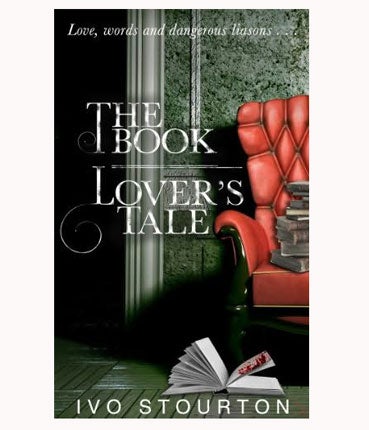The Book Lover's Tale, By Ivo Stourton
Novel villain in literary clothing

Your support helps us to tell the story
From reproductive rights to climate change to Big Tech, The Independent is on the ground when the story is developing. Whether it's investigating the financials of Elon Musk's pro-Trump PAC or producing our latest documentary, 'The A Word', which shines a light on the American women fighting for reproductive rights, we know how important it is to parse out the facts from the messaging.
At such a critical moment in US history, we need reporters on the ground. Your donation allows us to keep sending journalists to speak to both sides of the story.
The Independent is trusted by Americans across the entire political spectrum. And unlike many other quality news outlets, we choose not to lock Americans out of our reporting and analysis with paywalls. We believe quality journalism should be available to everyone, paid for by those who can afford it.
Your support makes all the difference.The comedic villain, from Richard III onwards, is a hard trick to pull off, for the balance between wit and evil is a tricky one.
Matt de Voy, Ivo Stourton's anti-hero in this novel, has a mild manner concealing a psychopathic detachment from the world, but is nevertheless an attractive character for any book lover. For Matt is supremely well-read, full of sharp quotes and references, and living disproof of F R Leavis's theory that the study of literature is an improving activity.
A rare-book collector who possesses a copy of Wynkyn de Worde's 1498 edition of the Canterbury Tales, he makes a living by working alongside his wife's interior decorating business. He advises the nouveaux riches which books to put on their shelves; even, in some cases, persuading them to open the tomes. In the course of business he encounters the lovely Claudia Swanson, who happens to have a miscarriage when Matt calls at her house. Claudia's husband is a self-made man, whose lack of education enables Matt to despise him in spite of his wealth.
Matt's love for Claudia leads into what, for him, is extreme behaviour. He takes a very valuable first edition off his shelves in order to read it, thereby reducing its value by turning the pages. He sets up a very special book club with only his beloved and himself as members – erotic material is the recommended reading so that they can enjoy "the artistic privilege of discussing pure filth". Faced with the failure of this seduction technique, he takes a bold decision for an intellectual: he will kill the husband. But his simple plan to push his rival under a train proves far more difficult than he thinks. Though Matt is not exactly Camus's "outsider", he suffers from the failure of the passive intellectual to engage with the physicalities of life.
The reader is entertained by Matt's sharp and cynical eye for the social types he encounters, especially the ghastly banker Hugo who, in a dinner-party clash with an Afghanistan war veteran, claims that real heroism is displayed by those noble souls who keep financial institutions running. The narrative is a bit too slow, but the book is very enjoyable reading. I totally disagree with Matt's assertion that Robinson Crusoe is the first English novel – that honour surely belongs to Philip Sidney's Arcadia – but all readers who love the book world will find stimulating amusement and argument here.
Join our commenting forum
Join thought-provoking conversations, follow other Independent readers and see their replies
Comments